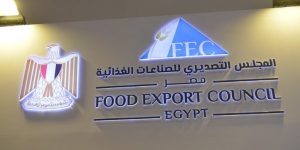The Silk Road was once a dynamic set of trade links connecting Asia, Europe and parts of Africa. Now, the ancient routes may be given new life as Chinese Muslim businessmen follow their ancestors’ footsteps to export halal food to the world.
Halal food is consumed not only by 1.5 billion Muslims around the world, but also by at least 500 million non-Muslims, Sha Pengcheng, honorary director of China Islamic Research Center, said at the ongoing China-Arab States Economic and Trade Forum.
However, China’s halal food exports only account for a meager percentage of the world’s total, indicating that China’s halal food industry is far from competitive in the world market, said Sha, who is also chairman of the Xi’an Muslim Enterprise Chamber of Commerce in Shaanxi province.
“China’s halal food exports have stood at $100 million each year as against the world’s total of over $500 billion,” said Sha, who is attending a Muslim entrepreneurs’ Summit on the sideline of the forum in Yinchuan, capital of northwest Ningxia Hui autonomous region.
“On the other hand, it means that there is much room for Chinese halal food industry to tap the world market,” he added.
Showroom of halal food
The 2nd Sino-Arab forum held in Ningxia in conjunction with a trade fair has created a platform for Chinese enterprises of Muslim commodities and halal food to showcase their products to the world.
Yinchuan-based Yijia Shenghe Muslim Food Company is one of such local enterprises looking for marketing and potential trade partners at the fair.
The company has rented a 36-square-meter booth for 20,000 yuan ($3,125 ) to show-off its various food products, ranging from Youxiang, a traditional oil-fried snack made of flour, sugar and eggs, to Sanzi, a flour-made pastry.
Established in 2009 out of a family-based workshop, the company has now developed into a jointly-owned business that employs 40 workers and supplies its upscale food products to the supermarkets and convenience stores in Yinchuan and surrounding counties.
“Although our company is small in scale at this beginning stage, our business is growing fast and I hope we can enter the Arabian markets in the near future,” said president Ma Xiaogang, a 35-year-old veteran-turned businessman.
For those forerunner companies, though, they have already gained access to the huge market in Muslim-populated countries.
At the China-Eurasia Expo held early this month in Urumqi, Xinjiang Uygur autonomous region, local businessman Ablajan received two orders from Turkey and Malaysia for 3.6 million pieces of Nang, a kind of popular pancake as staple food for Xinjiang’s Muslims.
His company will soon be capable of making 60,000 pieces of Nang a day, which can be shipped to overseas markets with a six-month sell-by period.
Ma of Yijia Shenghe said his company was also planning to introduce sealed packing for its Youxiang to enable a longer sell-by period for future export.
Bumpy yet promising road
Ningxia, home to about 10 percent of the country’s 20 million Muslims, served as a place of exchange for Chinese and Arabian cultures in ancient times, functioning as a bridge for trade between China and Arabian nations.
Nowadays, foreign businessmen focus on Ningxia on the ancient Silk Road as a ready access to a much larger market.
“The markets of Ningxia and the neighboring regions like Shaanxi, Gansu and Inner Mongolia not only cater for the foreign exporters of halal food but also the foreign importers buying the halal food from China,” said Mohamad Hamid, chairman of Malaysia-based food company Mosh Sdn Bhd.
Halal food as a concept stems basically from the established tradition of obligatory compliance to the Islamic demands on the right choices of food and the right procedures of food preparations.
However, there are different interpretations for halal food among Muslims, and it is becoming an obstacle to the halal food business, Hamid said.
To solve this problem, China is trying to bring its halal food certification to the world arena for wider recognition.
The Halal Food Certification Center in Ningxia signed agreements at the forum with its counterparts from Saudi Arab, Egypt and Qatar to grant mutual recognition to their certifications.
Previously, Ningxia had already signed similar agreements with Malaysia, New Zealand and Australia.
Wang Shengqun, director at the Ningxia certification center, said such mutual recognition is beneficial for Ningxia’s halal food exports and will thus help bolster the development of the industry. – Xinhua



